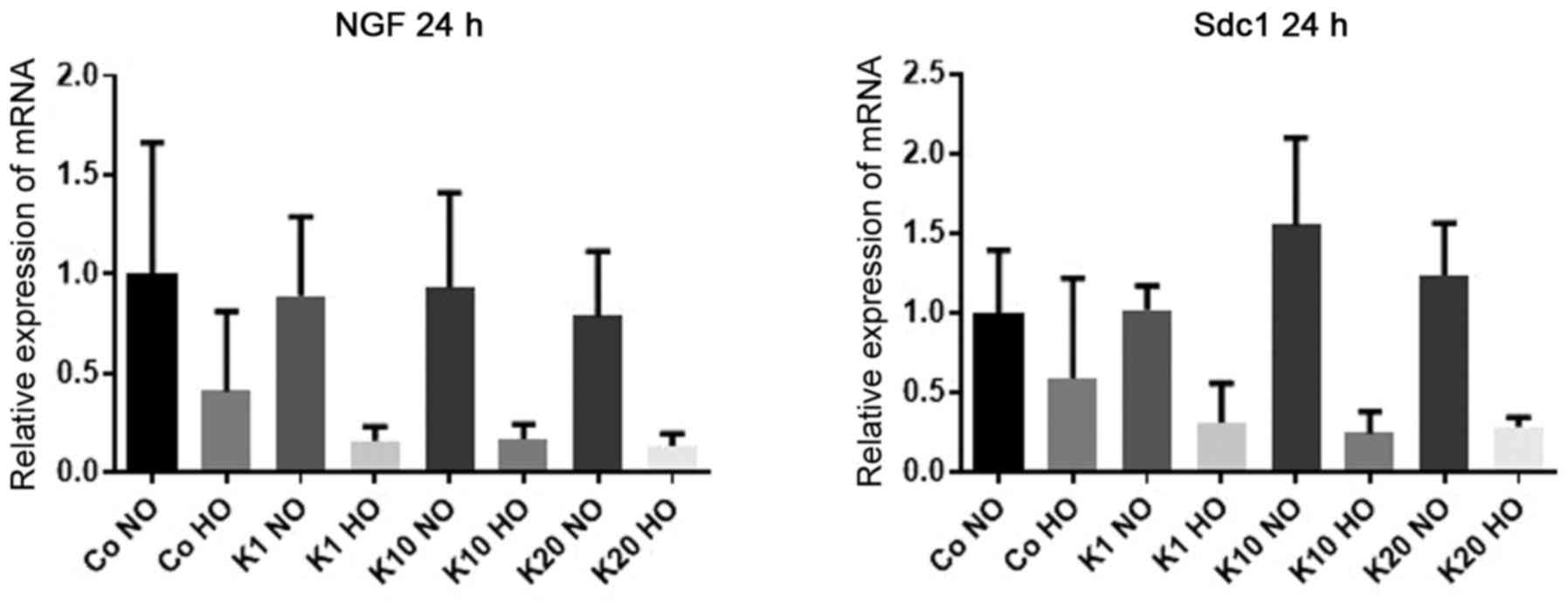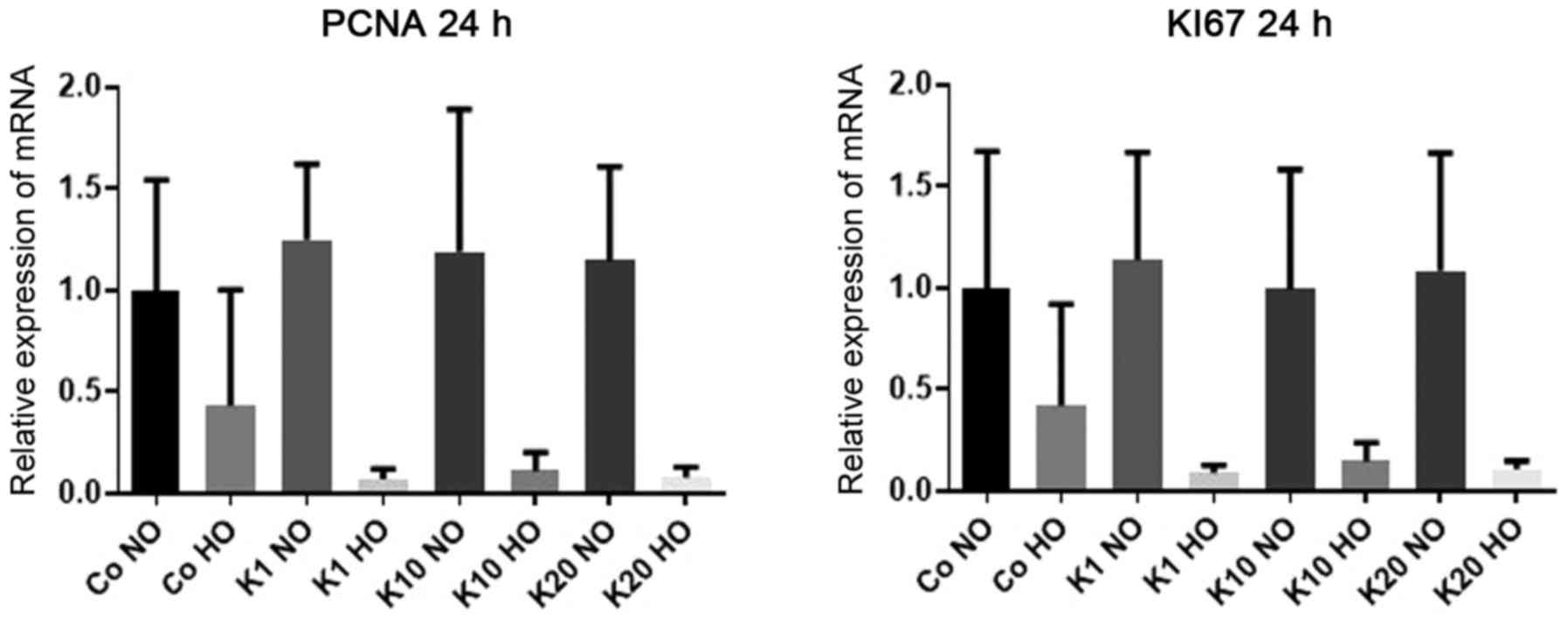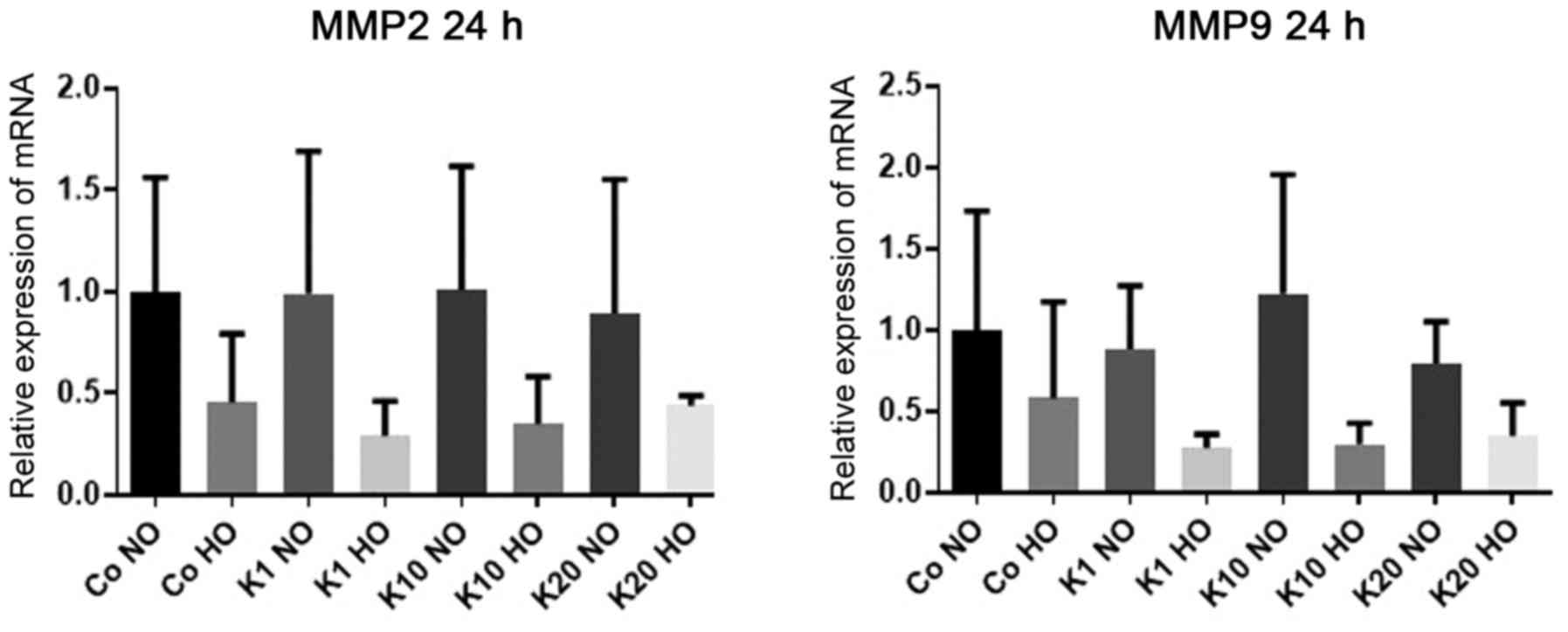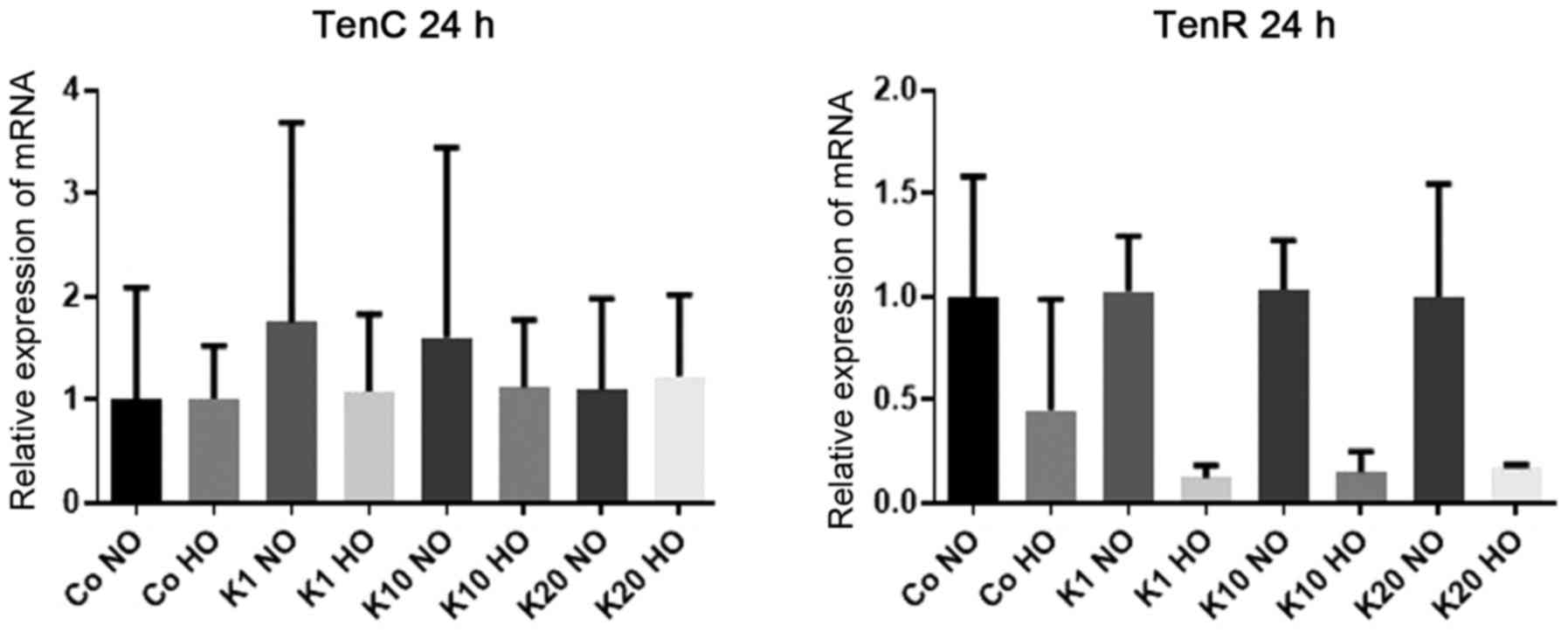|
1
|
Domino EF: Taming the ketamine tiger.
Anesthesiology. 113:678–686. 2010.PubMed/NCBI View Article : Google Scholar
|
|
2
|
Arora S: Combining ketamine and propofol
(‘ketofol’) for emergency department procedural sedation and
analgesia: A review. West J Emerg Med. 9:20–23. 2008.PubMed/NCBI
|
|
3
|
Green SM, Roback MG, Kennedy RM and Krauss
B: Clinical practice guideline for emergency department ketamine
dissociative sedation: 2011 update. Ann Emerg Med. 57:449–461.
2011.PubMed/NCBI View Article : Google Scholar
|
|
4
|
Green SM, Roback MG, Krauss B, Brown L,
McGlone RG, Agrawal D, McKee M, Weiss M, Pitetti RD, Hostetler MA,
et al: Predictors of emesis and recovery agitation with emergency
department ketamine sedation: An individual-patient data
meta-analysis of 8,282 children. Ann Emerg Med. 54:171–180.e4.
2009.PubMed/NCBI View Article : Google Scholar
|
|
5
|
Street MH and Gerard JM: A fixed-dose
ketamine protocol for adolescent sedations in a pediatric emergency
department. J Pediatr. 165:453–458. 2014.PubMed/NCBI View Article : Google Scholar
|
|
6
|
Yan J and Jiang H: Dual effects of
ketamine: Neurotoxicity versus neuroprotection in anesthesia for
the developing brain. J Neurosurg Anesthesiol. 26:155–160.
2014.PubMed/NCBI View Article : Google Scholar
|
|
7
|
Ikonomidou C, Bosch F, Miksa M, Bittigau
P, Vöckler J, Dikranian K, Tenkova TI, Stefovska V, Turski L and
Olney JW: Blockade of NMDA receptors and apoptotic
neurodegeneration in the developing brain. Science. 283:70–74.
1999.PubMed/NCBI View Article : Google Scholar
|
|
8
|
Slikker W Jr, Zou X, Hotchkiss CE, Divine
RL, Sadovova N, Twaddle NC, Doerge DR, Scallet AC, Patterson TA,
Hanig JP, et al: Ketamine-induced neuronal cell death in the
perinatal rhesus monkey. Toxicol Sci. 98:145–158. 2007.PubMed/NCBI View Article : Google Scholar
|
|
9
|
Paule MG, Li M, Allen RR, Liu F, Zou X,
Hotchkiss C, Hanig JP, Patterson TA, Slikker W Jr and Wang C:
Ketamine anesthesia during the first week of life can cause
long-lasting cognitive deficits in rhesus monkeys. Neurotoxicol
Teratol. 33:220–230. 2011.PubMed/NCBI View Article : Google Scholar
|
|
10
|
Liu F, Paule MG, Ali S and Wang C:
Ketamine-induced neurotoxicity and changes in gene expression in
the developing rat brain. Curr Neuropharmacol. 9:256–261.
2011.PubMed/NCBI View Article : Google Scholar
|
|
11
|
Ye Z, Li Q, Guo Q, Xiong Y, Guo D, Yang H
and Shu Y: Ketamine induces hippocampal apoptosis through a
mechanism associated with the caspase-1 dependent pyroptosis.
Neuropharmacology. 128:63–75. 2018.PubMed/NCBI View Article : Google Scholar
|
|
12
|
Yan J, Huang Y, Lu Y, Chen J and Jiang H:
Repeated administration of ketamine can induce hippocampal
neurodegeneration and long-term cognitive impairment via the
ROS/HIF-1α pathway in developing rats. Cell Physiol Biochem.
33:1715–1732. 2014.PubMed/NCBI View Article : Google Scholar
|
|
13
|
Huang L, Liu Y, Jin W, Ji X and Dong Z:
Ketamine potentiates hippocampal neurodegeneration and persistent
learning and memory impairment through the PKCγ-ERK signaling
pathway in the developing brain. Brain Res. 1476:164–171.
2012.PubMed/NCBI View Article : Google Scholar
|
|
14
|
Hayashi H, Dikkes P and Soriano S:
Repeated administration of ketamine may lead to neuronal
degeneration in the developing rat brain. Pediatr Anesth.
12:770–774. 2002.PubMed/NCBI View Article : Google Scholar
|
|
15
|
Zou X, Patterson TA, Sadovova N, Twaddle
NC, Doerge DR, Zhang X, Fu X, Hanig JP, Paule MG, Slikker W and
Wang C: Potential neurotoxicity of ketamine in the developing rat
brain. Toxicol Sci. 108:149–158. 2009.PubMed/NCBI View Article : Google Scholar
|
|
16
|
Anand KJ, Garg S, Rovnaghi CR, Narsinghani
U, Bhutta AT and Hall RW: Ketamine reduces the cell death following
inflammatory pain in newborn rat brain. Pediatr Res. 62:283–290.
2007.PubMed/NCBI View Article : Google Scholar
|
|
17
|
Khwaja O and Volpe JJ: Pathogenesis of
cerebral white matter injury of prematurity. Arch Dis Child Fetal
Neonatal Ed. 93:F153–F161. 2008.PubMed/NCBI View Article : Google Scholar
|
|
18
|
Douglas-Escobar M and Weiss MD:
Hypoxic-ischemic encephalopathy. JAMA Pediatr. 169:397–403.
2015.
|
|
19
|
Rothman SM, Thurston JH, Hauhart RE, Clark
GD and Solomon JS: Ketamine protects hippocampal neurons from
anoxia in vitro. Neuroscience. 21:673–678. 1987.PubMed/NCBI View Article : Google Scholar
|
|
20
|
Spandou E, Karkavelas G, Soubasi V,
Avgovstides-Savvopoulou P, Loizidis T and Guiba-Tziampiri O: Effect
of ketamine on hypoxic-ischemic brain damage in newborn rats. Brain
Res. 819:1–7. 1999.PubMed/NCBI View Article : Google Scholar
|
|
21
|
Chang EI, Zárate MA, Rabaglino MB,
Richards EM, Arndt TJ, Keller-Wood M and Wood CE: Ketamine
decreases inflammatory and immune pathways after transient hypoxia
in late gestation fetal cerebral cortex. Physiol Rep.
4(e12741)2016.PubMed/NCBI View Article : Google Scholar
|
|
22
|
Chen HS, Wang Y, Rayudu P, Edgecomb P,
Neill J, Segal M, Lipton SA and Jensen FE: Neuroprotective
concentrations of the N-methyl-D-aspartate open-channel blocker
memantine are effective without cytoplasmic vacuolation following
post-ischemic administration and do not block maze learning or
long-term potentiation. Neuroscience. 86:1121–1132. 1998.PubMed/NCBI View Article : Google Scholar
|
|
23
|
Manning SM, Talos DM, Zhou C, Selip DB,
Park HK, Park CJ, Volpe JJ and Jensen FE: NMDA receptor blockade
with memantine attenuates white matter injury in a rat model of
periventricular leukomalacia. J Neurosci. 28:6670–6678.
2008.PubMed/NCBI View Article : Google Scholar
|
|
24
|
Guerra GG, Robertson CMT, Alton GY, Joffe
AR, Cave DA, Dinu IA, Creighton DE, Ross DB and Rebeyka IM: Western
Canadian Complex Pediatric Therapies Follow-up Group:
Neurodevelopmental outcome following exposure to sedative and
analgesic drugs for complex cardiac surgery in infancy. Paediatr
Anaesth. 21:932–941. 2011.PubMed/NCBI View Article : Google Scholar
|
|
25
|
Hansen TG, Pedersen JK, Henneberg SW,
Pedersen DA, Murray JC, Morton NS and Christensen K: Academic
performance in adolescence after inguinal hernia repair in infancy:
A nationwide cohort study. Anesthesiology. 114:1076–1085.
2011.PubMed/NCBI View Article : Google Scholar
|
|
26
|
Loss CM, Córdova SD and De Oliveira DL:
Ketamine reduces neuronal degeneration and anxiety levels when
administered during early life-induced status epilepticus in rats.
Brain Res. 1474:110–117. 2012.PubMed/NCBI View Article : Google Scholar
|
|
27
|
Turner CP, Gutierrez S, Liu C, Miller L,
Chou J, Finucane B, Carnes A, Kim J, Shing E, Haddad T and Phillips
A: Strategies to defeat ketamine-induced neonatal brain injury.
Neuroscience. 210:384–392. 2012.PubMed/NCBI View Article : Google Scholar
|
|
28
|
Zhang X, Zhao J, Chang T, Wang Q, Liu W
and Gao L: Ketamine exerts neurotoxic effects on the offspring of
pregnant rats via the Wnt/β-catenin pathway. Environ Sci Pollut
Res. 27:305–314. 2020.PubMed/NCBI View Article : Google Scholar
|
|
29
|
Slikker W Jr, Liu F, Rainosek SW,
Patterson TA, Sadovova N, Hanig JP, Paule MG and Wang C:
Ketamine-induced toxicity in neurons differentiated from neural
stem cells. Mol Neurobiol. 52:959–969. 2015.PubMed/NCBI View Article : Google Scholar
|
|
30
|
Jiang S, Li X, Jin W, Duan X, Bo L, Wu J,
Zhang R, Wang Y, Kang R and Huang L: Ketamine-induced neurotoxicity
blocked by N-Methyl-D-aspartate is mediated through activation of
PKC/ERK pathway in developing hippocampal neurons. Neurosci Lett.
673:122–131. 2018.PubMed/NCBI View Article : Google Scholar
|
|
31
|
Zhao Z, Lu R, Zhang B, Shen J, Yang L,
Xiao S, Liu J and Suo W: Differentiation of HT22 neurons induces
expression of NMDA receptor that mediates homocysteine
cytotoxicity. Neurol Res. 34:38–43. 2012.PubMed/NCBI View Article : Google Scholar
|
|
32
|
Lathe R: Hormones and the hippocampus. J
Endocrinol. 169:205–231. 2001.PubMed/NCBI View Article : Google Scholar
|
|
33
|
Neves G, Cooke SF and Bliss TV: Synaptic
plasticity, memory and the hippocampus: A neural network approach
to causality. Nat Rev Neurosci. 9:65–75. 2008.PubMed/NCBI View Article : Google Scholar
|
|
34
|
Femenía T, Gómez-Galán M, Lindskog M and
Magara S: Dysfunctional hippocampal activity affects emotion and
cognition in mood disorders. Brain Res. 1476:58–70. 2012.PubMed/NCBI View Article : Google Scholar
|
|
35
|
Lee Y, Park HW, Park SG, Cho S, Myung PK,
Park BC and Lee DH: Proteomic analysis of glutamate-induced
toxicity in HT22 cells. Proteomics. 7:185–193. 2007.PubMed/NCBI View Article : Google Scholar
|
|
36
|
Zhang J, Feng J, Ma D, Wang F, Wang Y, Li
C, Wang X, Yin X, Zhang M, Dagda RK and Zhang Y: Neuroprotective
mitochondrial remodeling by AKAP121/PKA protects HT22 cell from
glutamate-induced oxidative stress. Mol Neurobiol. 56:5586–5607.
2019.PubMed/NCBI View Article : Google Scholar
|
|
37
|
Livak KJ and Schmittgen TD: Analysis of
relative gene expression data using real-time quantitative PCR and
the 2(-Delta Delta C(T)) method. Methods. 25:402–408.
2001.PubMed/NCBI View Article : Google Scholar
|
|
38
|
Manni L, Rocco ML, Bianchi P, Soligo M,
Guaragna M, Barbaro SP and Aloe L: Nerve growth factor: Basic
studies and possible therapeutic applications. Growth Factors.
31:115–122. 2013.PubMed/NCBI View Article : Google Scholar
|
|
39
|
Wang Q, Yang L, Alexander C and Temple S:
The niche factor syndecan-1 regulates the maintenance and
proliferation of neural progenitor cells during mammalian cortical
development. PLoS One. 7(e42883)2012.PubMed/NCBI View Article : Google Scholar
|
|
40
|
Bologna-Molina R, Mosqueda-Taylor A,
Molina-Frechero N, Mori-Estevez AD and Sánchez-Acuña G: Comparison
of the value of PCNA and Ki-67 as markers of cell proliferation in
ameloblastic tumors. Med Oral Patol Oral Cir Bucal. 18:e174–e179.
2013.PubMed/NCBI View Article : Google Scholar
|
|
41
|
Boehm EM, Gildenberg MS and Washington MT:
The many roles of PCNA in eukaryotic DNA replication. Enzymes.
39:231–254. 2016.PubMed/NCBI View Article : Google Scholar
|
|
42
|
Juríková M, Danihel Ľ, Polák Š and Varga
I: Ki67, PCNA, and MCM proteins: Markers of proliferation in the
diagnosis of breast cancer. Acta Histochem. 118:544–552.
2016.PubMed/NCBI View Article : Google Scholar
|
|
43
|
Leonardo CC, Eakin AK, Ajmo JM, Collier
LA, Pennypacker KR, Strongin AY and Gottschall PE: Delayed
administration of a matrix metalloproteinase inhibitor limits
progressive brain injury after hypoxia-ischemia in the neonatal
rat. J Neuroinflammation. 5(34)2008.PubMed/NCBI View Article : Google Scholar
|
|
44
|
Midwood KS, Hussenet T, Langlois B and
Orend G: Advances in tenascin-C biology. Cell Mol Life Sci.
68:3175–3199. 2011.PubMed/NCBI View Article : Google Scholar
|
|
45
|
Anlar B and Gunel-Ozcan A: Tenascin-R:
Role in the central nervous system. Int J Biochem Cell Biol.
44:1385–1389. 2012.PubMed/NCBI View Article : Google Scholar
|
|
46
|
Cunningham LA, Wetzel M and Rosenberg GA:
Multiple roles for MMPs and TIMPs in cerebral ischemia. Glia.
50:329–339. 2005.PubMed/NCBI View Article : Google Scholar
|
|
47
|
Yang Y and Rosenberg GA: Matrix
metalloproteinases as therapeutic targets for stroke. Brain Res.
1623:30–38. 2015.PubMed/NCBI View Article : Google Scholar
|
|
48
|
Ulbrich F, Eisert L, Buerkle H, Goebel U
and Schallner N: Propofol, but not ketamine or midazolam, exerts
neuroprotection after ischaemic injury by inhibition of Toll-like
receptor 4 and nuclear factor kappa-light-chain-enhancer of
activated B-cell signalling: A combined in vitro and animal study.
Eur J Anaesthesiol. 33:670–680. 2016.PubMed/NCBI View Article : Google Scholar
|
|
49
|
Gordon J, Amini S and White MK: General
overview of neuronal cell culture. Methods Mol Biol. 1078:1–8.
2013.PubMed/NCBI View Article : Google Scholar
|
|
50
|
Huang R, Sochocka E and Hertz L: Cell
culture studies of the role of elevated extracellular glutamate and
K+ in neuronal cell death during and after anoxia/ischemia.
Neurosci Biobehav Rev. 21:129–134. 1997.PubMed/NCBI View Article : Google Scholar
|
|
51
|
Montero M, González B and Zimmer J:
Immunotoxic depletion of microglia in mouse hippocampal slice
cultures enhances ischemia-like neurodegeneration. Brain Res.
1291:140–152. 2009.PubMed/NCBI View Article : Google Scholar
|
|
52
|
Neumann J, Gunzer M, Gutzeit HO, Ullrich
O, Reymann KG and Dinkel K: Microglia provide neuroprotection after
ischemia. FASEB J. 20:714–716. 2006.PubMed/NCBI View Article : Google Scholar
|
|
53
|
Zanos P, Moaddel R, Morris PJ, Riggs LM,
Highland JN, Georgiou P, Pereira EFR, Albuquerque EX, Thomas CJ,
Zarate CA Jr and Gould TD: Ketamine and ketamine metabolite
pharmacology: Insights into therapeutic mechanisms. Pharmacol Rev.
70:621–660. 2018.PubMed/NCBI View Article : Google Scholar
|


















